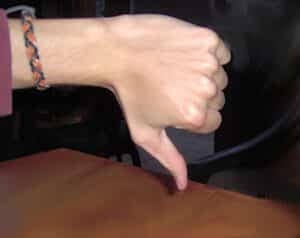Treacherous Fakes, Part 2 | Childhood Obesity News

This post continues a recent post, and this one is as disturbing as the other. Last month, Registered Dietitian Catherine Rall told Healthline.com,
Any time you’re taking an unregulated drug, you’re taking a huge risk since it could literally contain anything. The best case scenario, outside of the unlikely idea that someone is selling Ozempic at below-market prices, is that you get an inert placebo. There’s also a huge risk that you’re putting something dangerous into your body.
The article also notes the warning voiced by Registered Nurse Nancy Mitchell, that the customer risks receiving harmful toxins, including heavy metals:
Every year, hundreds of people show up in the ER with severe allergic reactions or lead poisoning that they acquired from some unknown generic source.
Of course, the World Health Organization warns the public about counterfeit websites, but given the high prices of bona fide pharmaceuticals, the widespread shortages, and the human tendency to hope for and believe in the impossible, caution is unlikely to be observed. Face it, most of us are nice people who can’t really believe that someone would sell us fake medicine that might be worse than useless.
Potential users are urged to verify the legitimacy of online pharmacies, but who knows how to do that?
And to be realistic, do people really care? The perils that may result from giving away any personal information online are just beginning to register in the average person’s consciousness. The world is full of endearing, lovely people who trust strangers enough to willingly fill out social media “get to know me” quizzes. Clever criminals collect all kinds of facts, and know more than anyone needs to about a person’s first pet, the color of their first car, and who their prom date was in 1980.
Be afraid… Be very afraid
A VanityFair.com piece by Katherine Eban reinforces all the caveats:
Under US law, drugs are supposed to travel seamlessly from a manufacturer’s loading dock to a distributor’s pristine warehouse to a pharmacy shelf through a protected chain of companies that follow strict requirements for handling medications and documenting sales.
“On the contrary,” says her story which traces the meticulous investigation into a particularly odious and huge batch of thousands of fake Ozempic pens that were dumped on the market last year, and also goes into the matter of drugs that are real enough, but “diverted” from the legitimate channels. Eban writes,
The drugs may well be authentic, but they might also be expired, improperly stored, or contaminated. Under FDA rules, diverted drugs are considered adulterated and not fit for human consumption, because their safety and quality cannot be guaranteed.
The globe is populated with criminals who “have been learning as they go how to breach America’s defenses in order to sell their counterfeit medicine in the most expensive, and lucrative, market in the world.” This market includes the proprietors of some weight-loss spas whose practices are unsavory, to say the least.
The Illinois Poison Center’s medical director, Michael Wahl, M.D., told the reporter that many patients have injected insulin disguised as Ozempic — which for non-diabetics can be seriously life-threatening, because if the body’s glucose level is too low for too long, irreversible brain damage may result.
In addition to the outright fakes and the stolen or “diverted” goods, there is the additional problem of legal but under-scrutinized and possibly untested substances. There are loopholes, under certain conditions of unavailability, that allow licensed “compounders” to manufacture drugs. Their ingredients are sometimes obtained from sources that cannot be described as either impeccable or acceptable:
Not every pharmacy compounder is equal in adherence to the law… The result has been a quality control disaster.
It looks as if people need to seriously ask themselves whether losing some pounds of flesh can be worth the price of losing an organ or even a life, especially when other methods, though difficult, are possible.
Your responses and feedback are welcome!
Source: “WHO Issues Global Warning About Fake Ozempic Being Sold Online,” Healthline.com, 06/24/24
Source: “Why Counterfeit Ozempic Is a Global-Growth Industry,” VanityFair.com, June 2024
Image by Richard Patterson/Attribution 2.0 Generic








